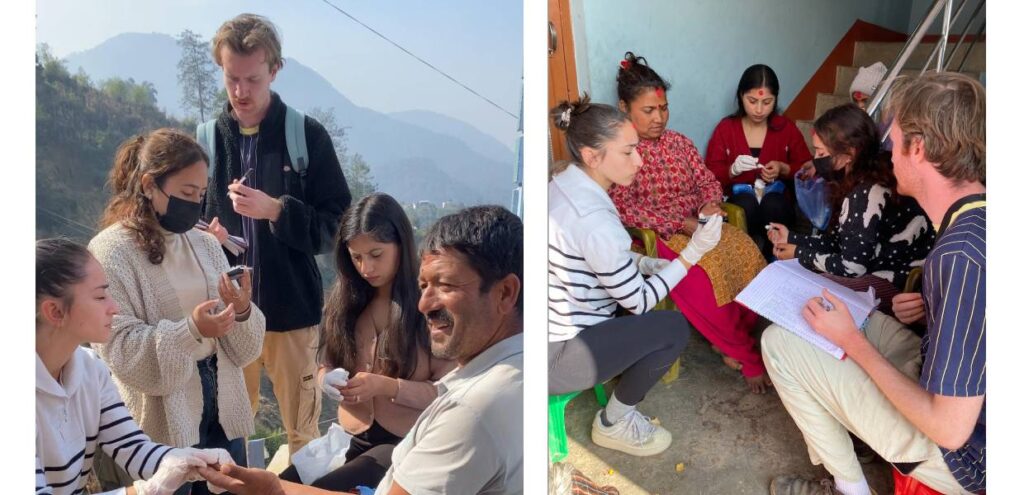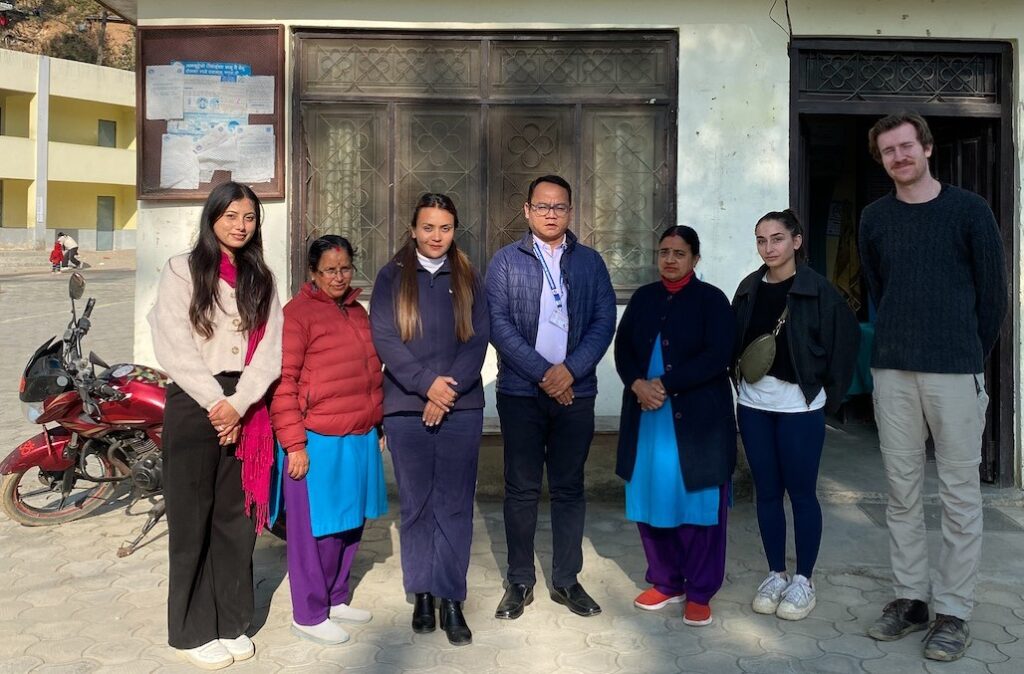Tarakeshwar, Nepal – February 2025
YWC ESC HumAid Public Health Volunteers have successfully conducted a series of health education workshops in rural Nepal, focusing on menopause awareness, diabetes prevention, and school health programs. These initiatives, which are carried out in collaboration with local communities and schools, aim to address critical gaps in public health knowledge and promote preventive healthcare practices.
Menopause Awareness: Breaking the Silence on Women’s Health
In many rural areas, menopause is a little-understood topic, leaving women unprepared for its physical and emotional effects. To address this, public health volunteers conducted informative workshops at Khadawalkot Basic School and Nagarjun Thulagaun Secondary School, engaging 27 women in discussions about:
✅ What menopause is and when it happens
✅ Common symptoms and health risks
✅ Lifestyle adjustments and relief strategies
“Many participants had never received any formal information on menopause before. These sessions provided them with valuable knowledge and a supportive environment to share their experiences,” said Kanchan Pokhrel, one of the facilitators.

Diabetes Prevention & Free Blood Sugar Testing
Diabetes is an increasing health concern in Nepal, yet many rural communities lack access to screening and preventive education. As part of their outreach, YWC ESC HumAid public health volunteers conducted eight diabetes workshops in Tarakeshwar-3, reaching 126 community members across the villages of Aryal Gau, Nayagau, Dadagau, Balami Gau, Lamichhane Gau, Panchmane, Bhubaneshwori, and Nayabasti.
Each workshop focused on:
✔️ Types of diabetes and associated health risks
✔️ Symptoms and early warning signs
✔️ Healthy lifestyle habits to prevent and manage diabetes
Additionally, free blood sugar testing was offered to all participants. However, ensuring fasting compliance was a challenge. “Some participants had eaten before their tests, but we still recorded their results for data tracking and future reference,” the team noted.
School Health Programs: Educating the Next Generation
With a strong emphasis on preventive healthcare, volunteers have also been working on a comprehensive school health initiative set to launch in February and March. The curriculum covers six key topics for students in grades 6, 7, and 9:
🔹 Environmental Health
🔹 Nutrition
🔹 Mental Health Awareness
🔹 Menstrual Health Education
🔹 Substance Abuse Awareness (Smoking, Drugs, Alcohol)
🔹 Physical Activities for Well-being
Initial school workshops have already started, with sessions on oral health and physical activities at Saraswoti School and nutrition and fitness programs at Jitpur School benefiting 94 students.
Collaborating with Local Health Posts

To enhance community healthcare access, volunteers engaged with local health posts, proposing joint health awareness campaigns. The response was overwhelmingly positive, and plans are underway to develop long-term public health programs in partnership with local healthcare providers.
Overcoming Challenges and Moving Forward
Despite these successes, the team faced several challenges:
🚧 Difficulty coordinating with women’s groups and community members due to conflicting schedules.
🚧 Ensuring accurate fasting blood sugar tests, as some participants had already eaten.
🚧 School holidays and exams limiting student participation.
Solutions Implemented:
🔹 Volunteers scheduled workshops to align with pre-planned community gatherings.
🔹 Blood sugar data was still recorded and adjusted accordingly.
🔹 School workshops were postponed to the following months for greater reach.
Lessons Learned & Future Plans
Through these initiatives, one thing has become clear: Rural communities are eager for health education.
“People are incredibly receptive to learning about their health. Their enthusiasm reinforces the need for continued outreach and engagement,” said Alicia Laranjeira, a public health volunteer.
Planned activities for next month include:
📌 Expanding school-based health education programs.
📌 Analyzing the blood sugar test data to share findings with local health authorities.
📌 Conducting additional community workshops on environmental health, hypertension, and mental well-being.
Sustaining Impact: A Call for Long-Term Health Monitoring
One of the key recommendations from this initiative is the need for regular blood sugar testing and health screenings in rural Nepal. This would help individuals monitor their health and allow local health authorities to track progress and implement necessary interventions.
Get Involved!
Want to support public health volunteers in making a lasting impact? Join YWC ESC Humaid and help bring health education and preventive care to Nepal’s underserved communities. Learn more about us

